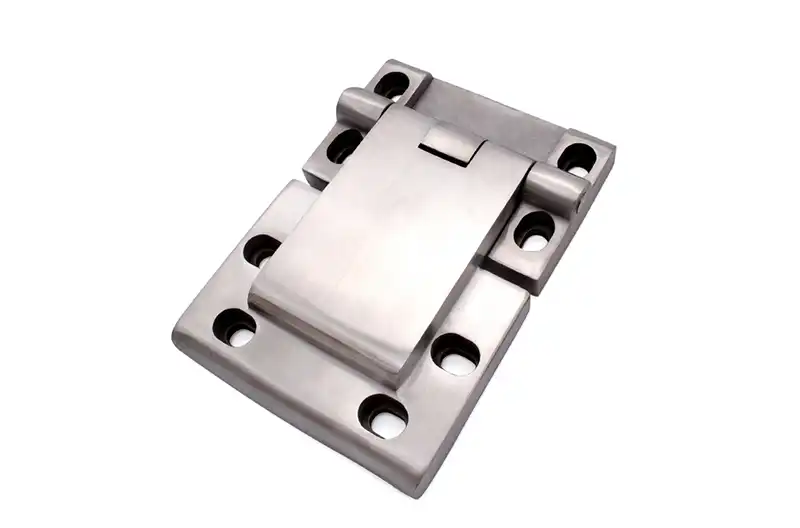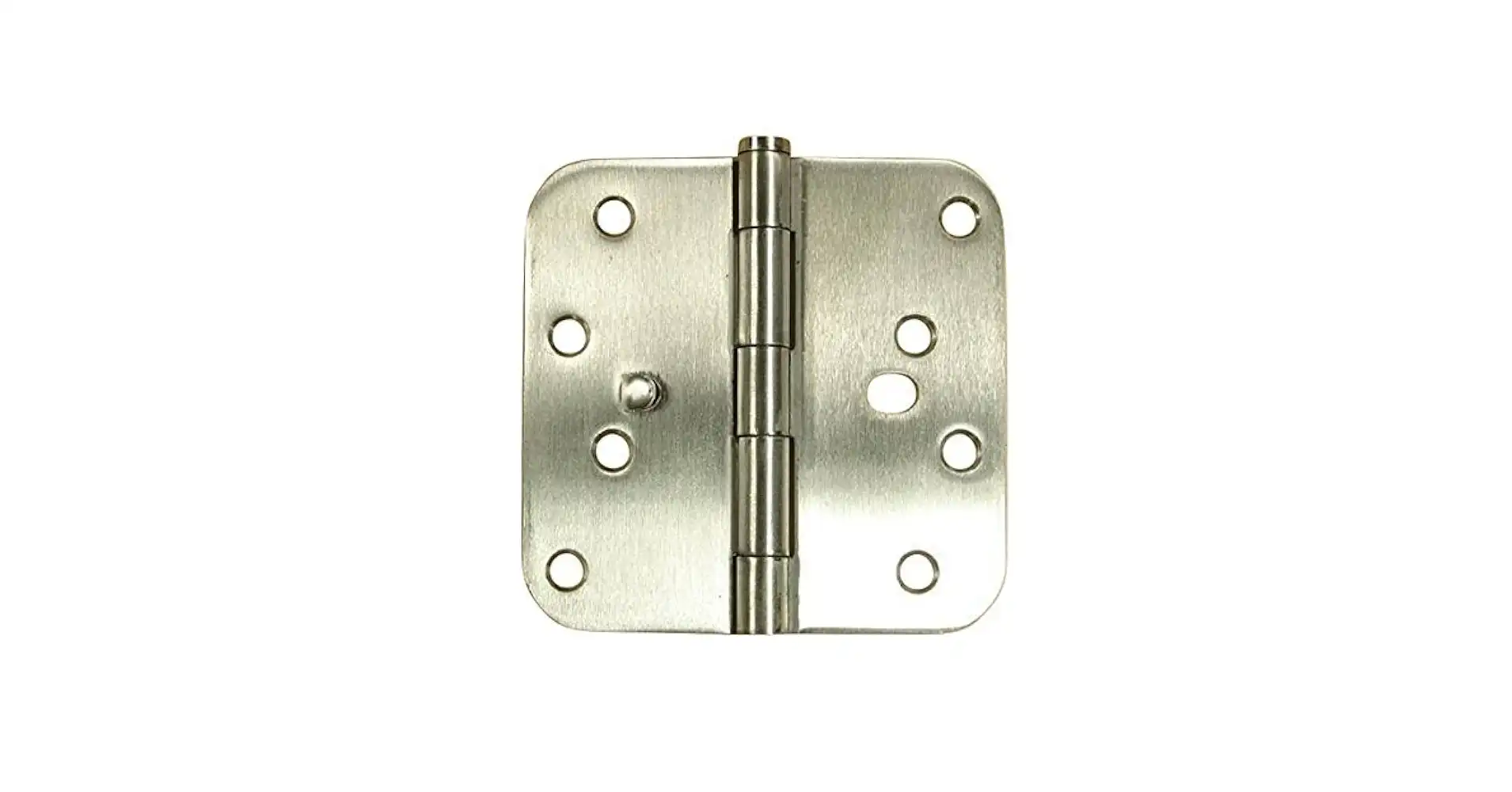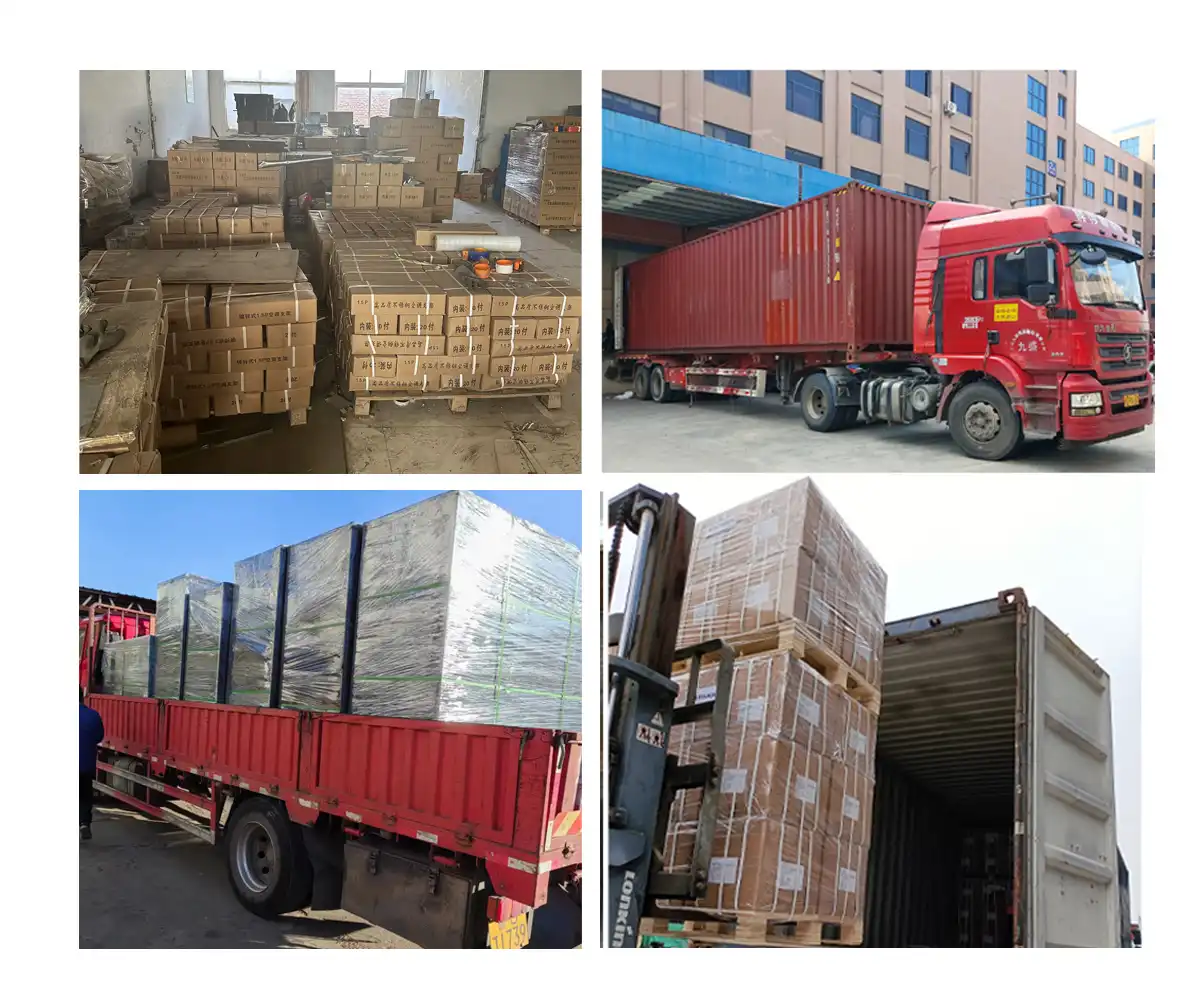2025's Leading Thick-Gauge Hinge for Coastal & Industrial Use
2025-10-28 13:44:32
Corrosion failures in coastal facilities cost industries millions annually, with standard hinges degrading within months under salt spray and humidity exposure. When equipment doors fail or enclosures lose their seal, production halts and safety risks escalate. The 2025's Leading Thick-Gauge Metal Hinge represents a breakthrough in durability engineering, specifically designed to withstand the harshest coastal and industrial environments where conventional hardware simply cannot survive. This advanced metal hinge solution addresses critical pain points including premature rust, load-bearing failures, and frequent replacement cycles that plague operations in marine ports, chemical plants, offshore platforms, and heavy manufacturing facilities.

Understanding Thick-Gauge Metal Hinge Engineering for Extreme Environments
Thick-gauge metal hinge construction fundamentally differs from standard hardware through material density and structural design. The gauge measurement refers to metal thickness, with lower gauge numbers indicating greater thickness and strength. Industrial-grade thick-gauge metal hinges typically range from 10-gauge to 3-gauge steel or stainless steel, providing substantially greater load capacity and resistance to deformation under stress. This engineering approach transforms the metal hinge from a simple pivot mechanism into a critical structural component capable of supporting heavy doors, hatches, and panels in demanding applications. The material selection for thick-gauge construction directly impacts performance longevity. Stainless steel grades 304 and 316 dominate coastal applications due to their chromium content, which forms a protective oxide layer resisting salt corrosion. Marine-grade 316 stainless contains additional molybdenum, further enhancing resistance to chloride attack in saltwater environments. Advanced manufacturing processes including progressive stamping and CNC machining ensure dimensional precision, while secondary treatments like electropolishing or powder coating add extra protection layers. These engineered metal hinges incorporate sealed bearing systems that prevent contaminant infiltration, maintaining smooth operation even after years of exposure to harsh conditions.
-
Material Science Behind Corrosion-Resistant Metal Hinges
The metallurgical composition of thick-gauge metal hinges determines their survival in corrosive environments. Stainless steel alloys achieve corrosion resistance through passive film formation, where chromium reacts with oxygen to create a microscopically thin, self-healing barrier. When this film suffers mechanical damage, it rapidly regenerates in the presence of oxygen, providing continuous protection. The 316-grade stainless steel used in premium thick-gauge metal hinges contains 16-18% chromium, 10-14% nickel, and 2-3% molybdenum, creating exceptional resistance to pitting and crevice corrosion that destroys lesser materials in marine atmospheres. Beyond base material selection, surface finishing dramatically extends service life. Electropolishing removes microscopic surface imperfections where corrosion typically initiates, creating an ultra-smooth finish that resists contaminant adhesion. Passivation treatments chemically enhance the protective chromium oxide layer, while anodizing processes applicable to aluminum thick-gauge hinges create a hard, corrosion-resistant surface layer. These advanced metal hinge finishing techniques, combined with proper installation and maintenance protocols, enable decades of reliable service in environments where unprotected steel would fail within months.
-
Load-Bearing Capacity and Structural Integrity
Thick-gauge metal hinges engineered for industrial applications must support substantial weight while maintaining alignment precision. A properly designed heavy-duty metal hinge distributes load forces across the entire hinge length, preventing stress concentration points that lead to premature failure. The pin diameter, knuckle dimensions, and leaf thickness all contribute to overall load capacity, with engineering calculations ensuring adequate safety factors for the intended application. Industrial thick-gauge hinges routinely support doors weighing several hundred pounds, with specialized designs handling loads exceeding one ton. Continuous hinge designs maximize load distribution by extending the full height or width of the door or panel. This configuration eliminates the stress concentration associated with discrete hinge points, providing superior performance for large, heavy closures. The thick-gauge construction ensures the hinge leaf maintains rigidity under load, preventing sagging or misalignment over time. Precision manufacturing tolerances, achievable through CNC machining and progressive stamping processes, guarantee proper pin-to-knuckle fit, minimizing wear and maintaining smooth operation throughout the hinge's service life.
Coastal Environment Challenges and Metal Hinge Solutions
Coastal industrial facilities face accelerated corrosion rates up to ten times higher than inland locations due to constant salt spray, high humidity, and temperature cycling. Standard zinc-plated or painted steel hinges typically fail within six to eighteen months in these conditions, requiring frequent replacement that disrupts operations and increases maintenance costs. The economic impact extends beyond hardware replacement, encompassing labor costs, production downtime, and potential safety incidents when degraded hinges cause equipment access failures. This operational reality drives demand for engineered thick-gauge metal hinge solutions that deliver multi-year service life without performance degradation. Salt spray testing according to ASTM B117 standards simulates years of coastal exposure in accelerated timeframes, validating metal hinge corrosion resistance. Premium thick-gauge metal hinges fabricated from marine-grade 316 stainless steel withstand thousands of hours in salt fog chambers without visible corrosion, demonstrating their suitability for the most demanding coastal applications. The combination of superior base material, precision manufacturing, and appropriate surface treatments creates hardware that maintains structural integrity and aesthetic appearance despite continuous exposure to aggressive marine atmospheres.
-
Marine Port and Shipyard Applications
Port facilities and shipyards represent particularly challenging environments for hardware, combining salt exposure with heavy mechanical loads and frequent operational cycles. Equipment enclosures, storage container doors, and access panels must function reliably despite constant moisture, salt contamination, and occasional impact loads. Thick-gauge metal hinges designed for these applications incorporate sealed bearing systems that exclude water and contaminants while providing smooth operation under load. The robust construction withstands both the corrosive environment and the mechanical stresses of daily use, eliminating the frustration of seized or corroded hinges that impede operations. Container handling equipment, crane maintenance platforms, and fueling system enclosures all benefit from upgraded thick-gauge metal hinge installations. These critical access points must open reliably during maintenance operations, often under time pressure when vessels are in port. A failed hinge can delay cargo operations costing thousands of dollars per hour, making hardware reliability a significant economic consideration. Investment in quality thick-gauge metal hinges represents preventive maintenance that eliminates emergency repairs and associated production losses.
-
Chemical Processing and Refineries
Chemical plants and petroleum refineries subject hardware to complex corrosive environments including acid vapors, hydrocarbon exposure, and temperature extremes. Standard hinges deteriorate rapidly, requiring frequent replacement in hazardous areas where maintenance access involves extensive safety protocols and hot work permits. Thick-gauge metal hinges fabricated from appropriate corrosion-resistant alloys maintain performance in these aggressive atmospheres, reducing maintenance frequency and improving operational safety by ensuring reliable access to critical systems. Process equipment enclosures often require frequent inspection access while maintaining environmental containment when closed. A properly engineered thick-gauge metal hinge provides the structural integrity to support heavy, gasketed doors while ensuring long-term alignment that preserves seal effectiveness. The dimensional stability of thick-gauge construction prevents warping or distortion that would compromise environmental protection, while corrosion resistance ensures the hardware maintains functionality throughout the equipment's service life.

Industrial Manufacturing Facility Requirements
Heavy manufacturing operations generate unique challenges for hardware components, including vibration, impact loads, thermal cycling, and contamination from metal particles, cutting fluids, and process chemicals. Equipment enclosures, machine guards, and access panels must withstand this demanding environment while providing reliable access for operators and maintenance personnel. Thick-gauge metal hinges engineered for industrial service deliver the robustness required for long-term performance in these conditions, eliminating the productivity losses associated with failed hardware that prevents equipment access. The manufacturing environment demands hardware that maintains performance despite minimal maintenance attention. Factory maintenance teams focus on production equipment, with peripheral components like hinges receiving attention only when they fail. Thick-gauge metal hinges constructed from durable materials with sealed bearings and corrosion-resistant finishes continue functioning reliably with minimal intervention, reducing the total cost of ownership compared to frequent replacement of inferior hardware.
-
Heavy Equipment and Machinery Guards
Safety regulations mandate proper guarding of rotating machinery, pinch points, and other hazards, requiring access panels that operators can open for setup and maintenance while providing robust protection during operation. These guards often experience impact loads, vibration, and contamination from the manufacturing process. Thick-gauge metal hinges provide the structural strength to support heavy guard panels while maintaining alignment that ensures proper closure and safety system functionality. The robust construction resists damage from occasional impacts that would disable lighter hardware. Machine tool enclosures protecting CNC equipment must allow access for part loading, tool changes, and maintenance while containing chips, coolant, and noise during operation. The doors undergo thousands of operating cycles annually, requiring hinges that maintain smooth operation and proper alignment despite continuous use. Thick-gauge metal hinges engineered for this duty cycle deliver reliable performance, eliminating the production delays caused by failed hardware that prevents machine access or compromises enclosure integrity.
-
Electrical and Control Enclosures
Electrical cabinets, control panels, and instrumentation enclosures require hinges that maintain door alignment for proper gasket compression and environmental seal integrity. Thick-gauge metal hinges provide the dimensional stability necessary to preserve these critical seals over years of service, protecting sensitive electronics from moisture, dust, and temperature extremes. The corrosion resistance of stainless steel or protected steel construction ensures the hinges maintain function even in humid industrial environments where condensation forms on electrical enclosures. Outdoor electrical installations face particularly demanding conditions, with temperature cycling, UV exposure, precipitation, and wind loads stressing cabinet doors and their mounting hardware. Premium thick-gauge metal hinges designed for exterior applications resist environmental degradation while supporting the weight of insulated, weather-sealed doors. Proper hinge selection and installation ensures electrical enclosures maintain their protective function throughout their service life, preventing moisture intrusion that could cause equipment damage or safety hazards.
Quality Manufacturing and Certification Standards
The reliability of thick-gauge metal hinges depends fundamentally on manufacturing quality, from raw material selection through final inspection. ISO 9001 certified manufacturing processes ensure consistent quality through documented procedures, statistical process control, and comprehensive testing protocols. Each production stage, from stamping or machining through finishing and assembly, follows specified parameters with regular verification to prevent defects. This systematic approach to quality management delivers hardware that meets performance specifications and provides predictable service life in demanding applications. Material traceability represents a critical quality assurance element for industrial hardware. Certified material test reports document the chemical composition and mechanical properties of the steel or stainless alloys used in thick-gauge metal hinge fabrication. This documentation verifies that the material meets specified corrosion resistance, strength, and durability requirements. For critical applications in regulated industries like petrochemical processing or marine operations, this material certification provides essential proof that hardware meets engineering specifications and regulatory requirements.
-
Advanced Manufacturing Processes
Progressive stamping technology enables efficient production of complex metal hinge components with excellent dimensional consistency. Multiple forming operations occur sequentially as sheet metal advances through the stamping die, creating precise features including knuckles, mounting holes, and reinforcement ribs. This manufacturing method achieves tight tolerances essential for proper hinge function while maintaining cost-effectiveness for volume production. The precision of modern progressive dies ensures components mate correctly during assembly, eliminating the binding or looseness that compromises performance. CNC machining provides the ultimate precision for thick-gauge metal hinge components requiring exact dimensions or specialized features. Computer-controlled cutting tools remove material according to programmed specifications, achieving tolerances measured in thousandths of an inch. This manufacturing capability enables custom hinge designs optimized for specific applications, from oversized industrial hinges to specialized shapes for unique installations. The combination of precision machining and appropriate material selection creates hardware that delivers superior performance and longevity compared to generic alternatives.
-
Surface Treatment Technologies
Powder coating technology provides durable, attractive finishes that enhance corrosion protection for thick-gauge metal hinges in various colors matching facility aesthetics. The electrostatically applied powder melts and flows during curing, creating a uniform coating that resists chipping, scratching, and chemical attack. This finishing process adds minimal thickness while significantly extending hardware service life in moderately corrosive environments. For industrial applications prioritizing cost-effectiveness, powder-coated steel thick-gauge hinges offer excellent performance at lower cost than stainless alternatives. Electropolishing and passivation treatments optimize the corrosion resistance of stainless steel thick-gauge metal hinges for the most demanding applications. Electropolishing removes microscopic surface irregularities through controlled electrochemical dissolution, creating an ultra-smooth finish that resists corrosion initiation and facilitates cleaning in sanitary applications. Passivation treatments chemically remove free iron from the stainless steel surface while enhancing the protective chromium oxide layer, maximizing corrosion resistance for marine and chemical processing environments.

Conclusion
Thick-gauge metal hinges engineered for coastal and industrial environments represent a critical investment in operational reliability and long-term cost reduction. Their superior corrosion resistance, load-bearing capacity, and durability eliminate the frequent replacement cycles plaguing facilities using inadequate hardware, while ensuring reliable equipment access essential for productivity and safety.
Cooperate with Qingdao RUIRUI Machinary Co., LTD.
As a leading China Thick-Gauge Metal Hinge manufacturer, China Thick-Gauge Metal Hinge supplier, and China Thick-Gauge Metal Hinge factory, Qingdao RUIRUI Machinary Co., LTD. delivers exceptional value through advanced manufacturing capabilities and rigorous quality control. Our China Thick-Gauge Metal Hinge wholesale pricing combined with High Quality Thick-Gauge Metal Hinge standards makes us your ideal partner. Check our competitive Thick-Gauge Metal Hinge price and explore our Thick-Gauge Metal Hinge for sale options. With ISO 9001, ISO 14001, and OHSAS 18001 certifications, we guarantee products meeting international standards. Our factory features eight automated production lines outputting 130,000 pieces annually, supporting everything from progressive stamping and deep drawing to powder coating, plating, and anodizing. We work with mild steel, stainless steel, aluminum alloys, copper, and brass, providing complete customization for your specific requirements. Contact us today at info@qdkshd.com to discuss your thick-gauge metal hinge needs. Save this resource for future reference when planning your next procurement project.
References
1. "Corrosion Resistant Fasteners and Hardware for Marine Applications" - ASTM International Standards Committee on Corrosion Testing, authored by Materials Engineering Division, 2024
2. "Heavy-Duty Hinge Design and Load Distribution in Industrial Applications" - American Society of Mechanical Engineers (ASME), authored by Industrial Hardware Research Group, 2023
3. "Stainless Steel Alloy Selection for Coastal and Marine Hardware" - National Association of Corrosion Engineers (NACE International), authored by Corrosion Prevention Technical Committee, 2024
4. "Manufacturing Quality Standards for Industrial Hardware Components" - International Organization for Standardization (ISO) Technical Committee 164, authored by Quality Assurance Working Group, 2023
Send Inquiry
You may like
